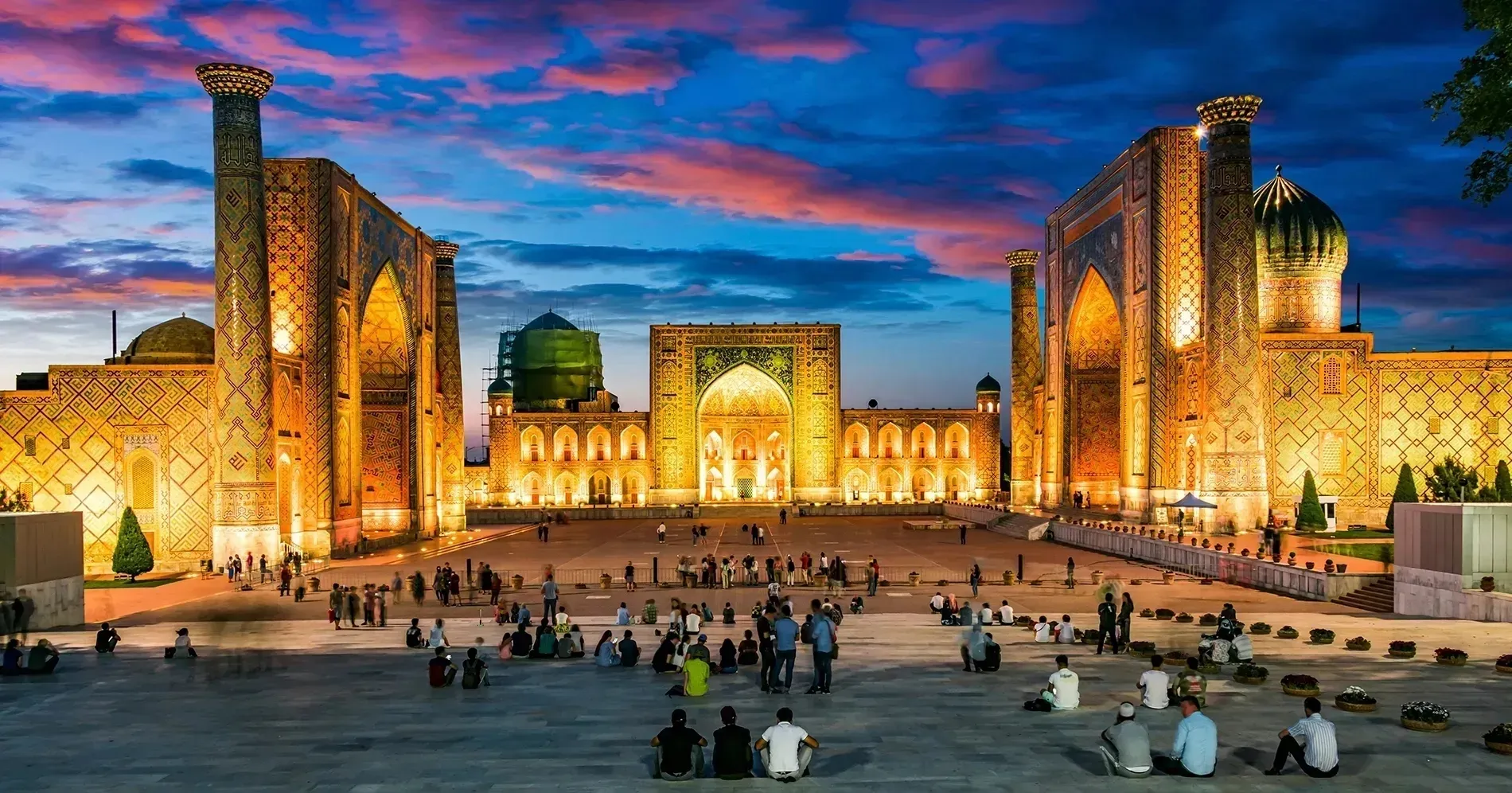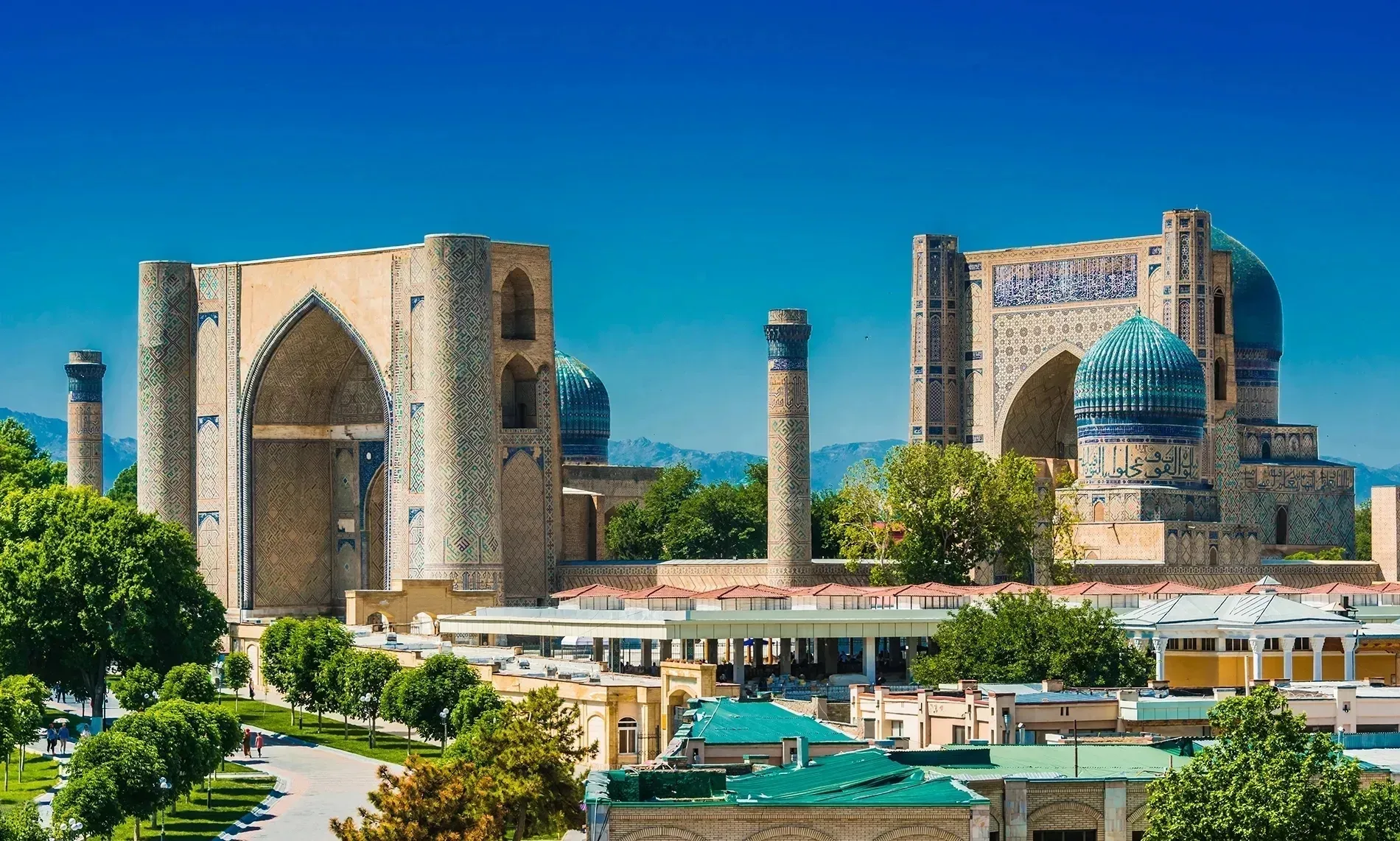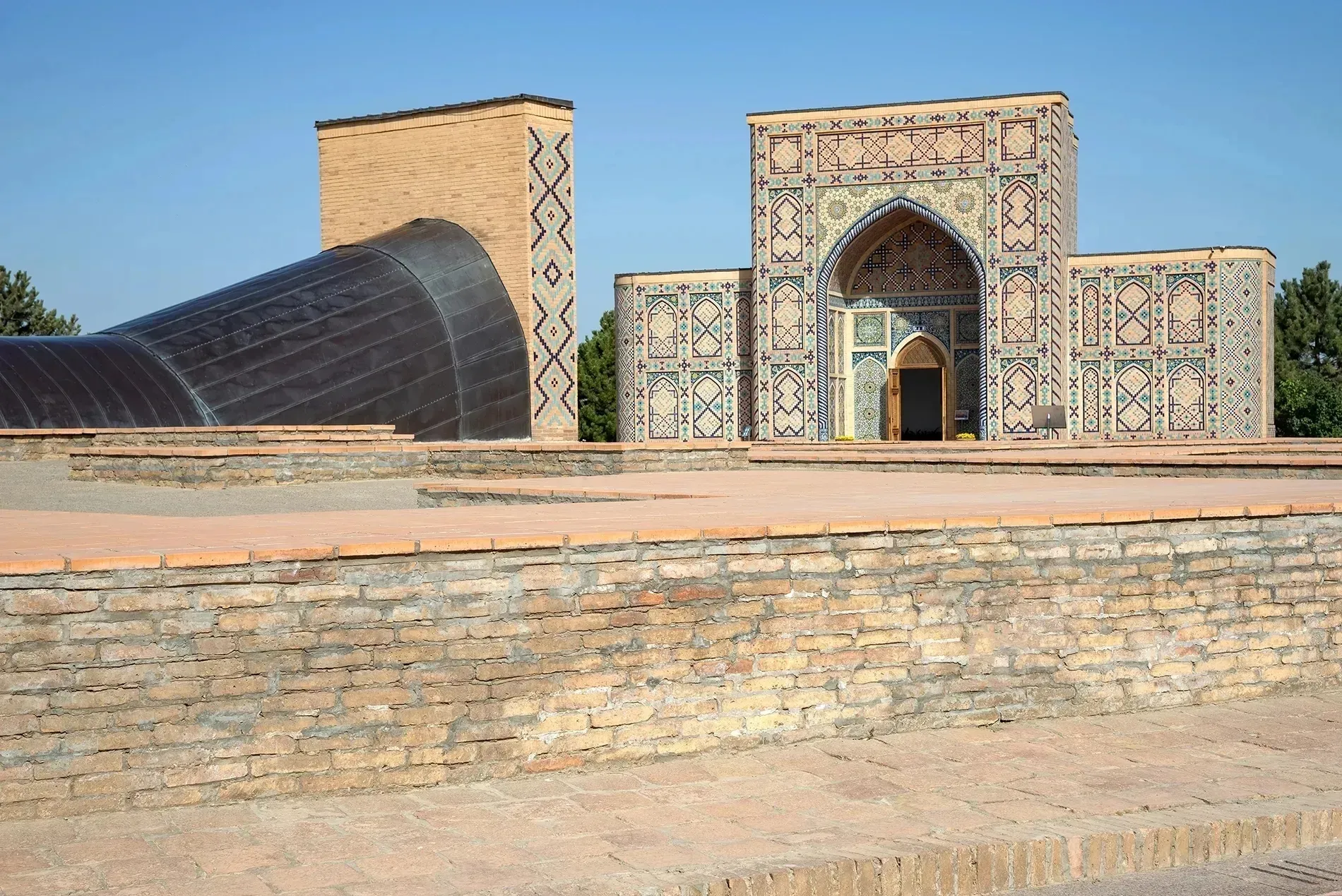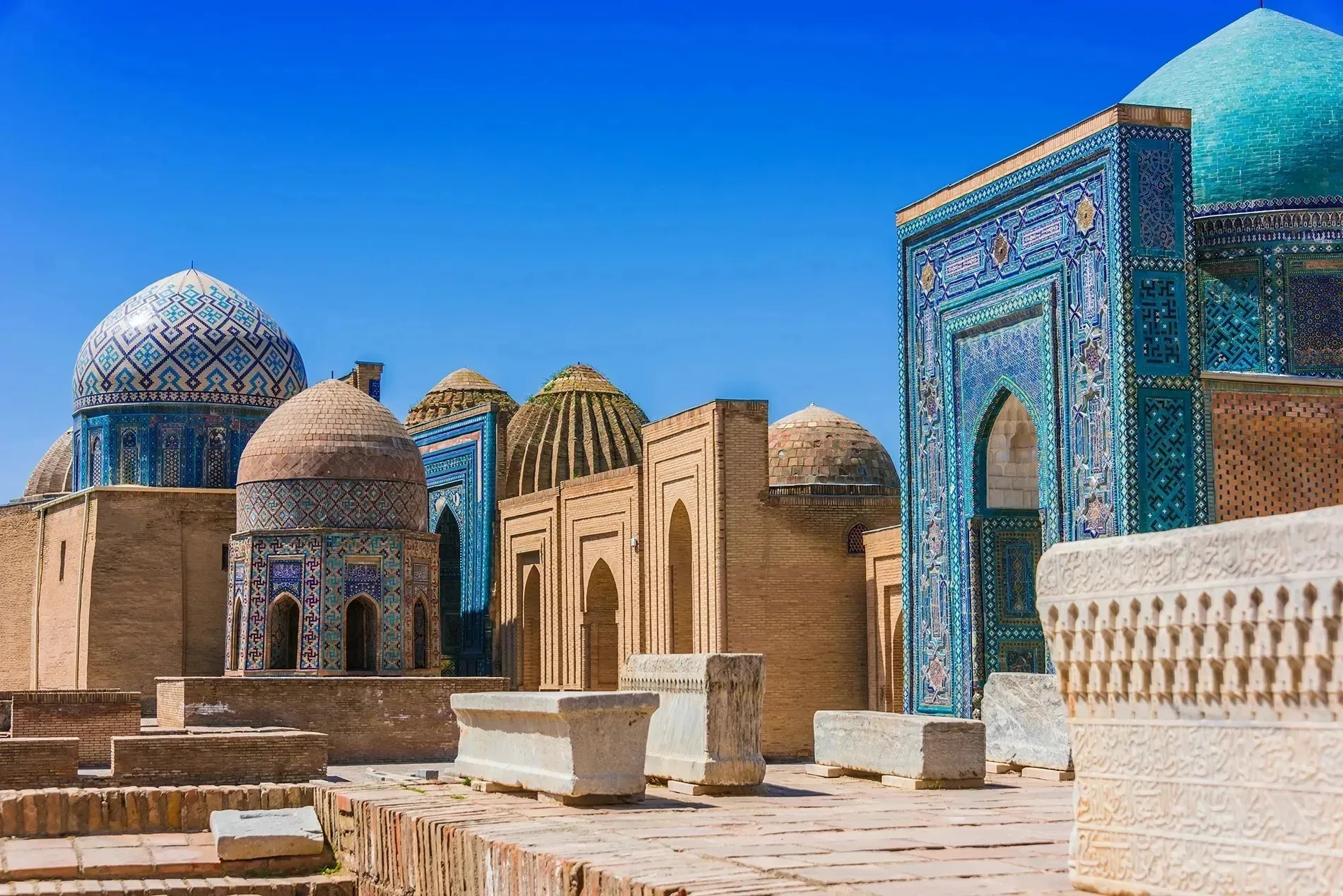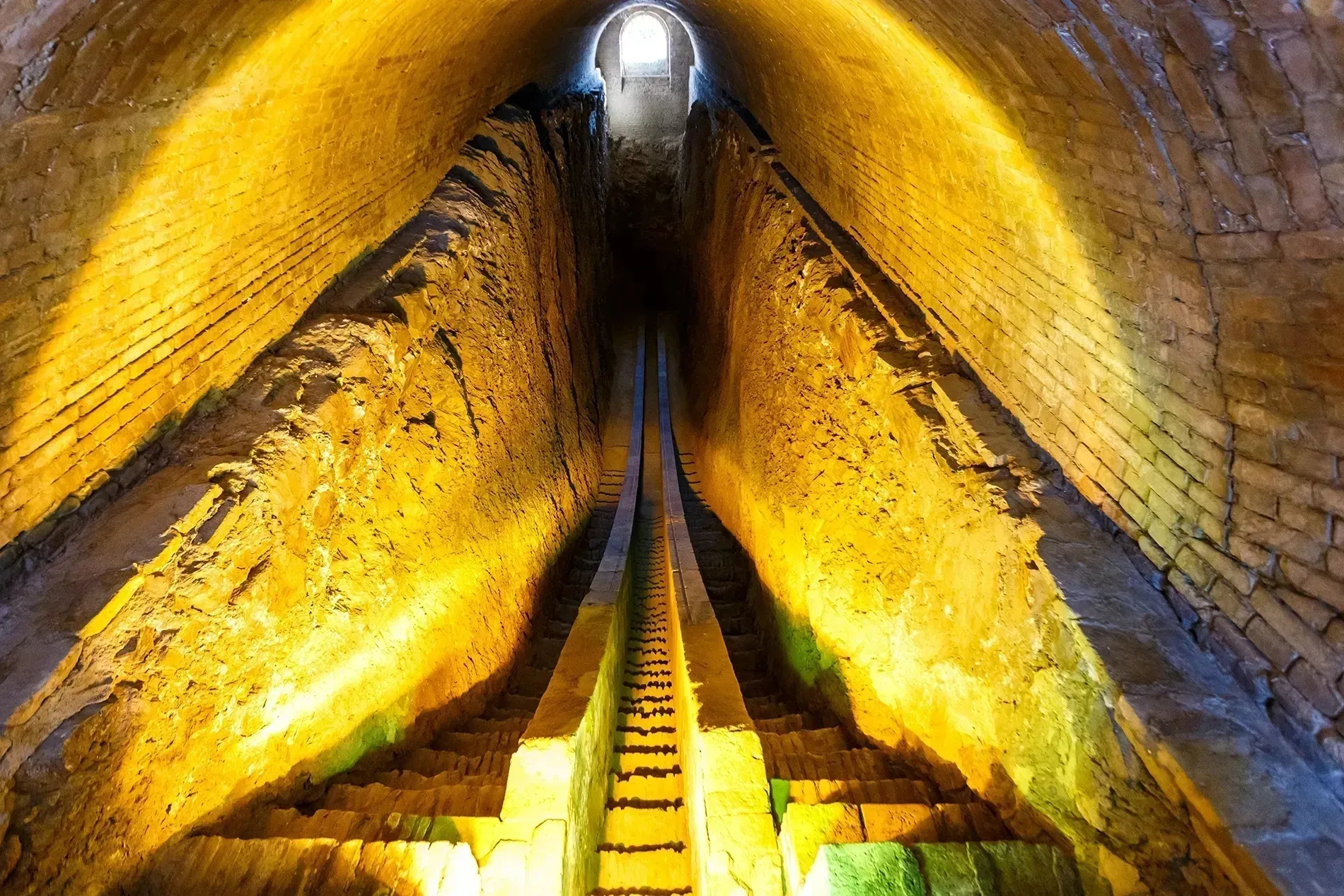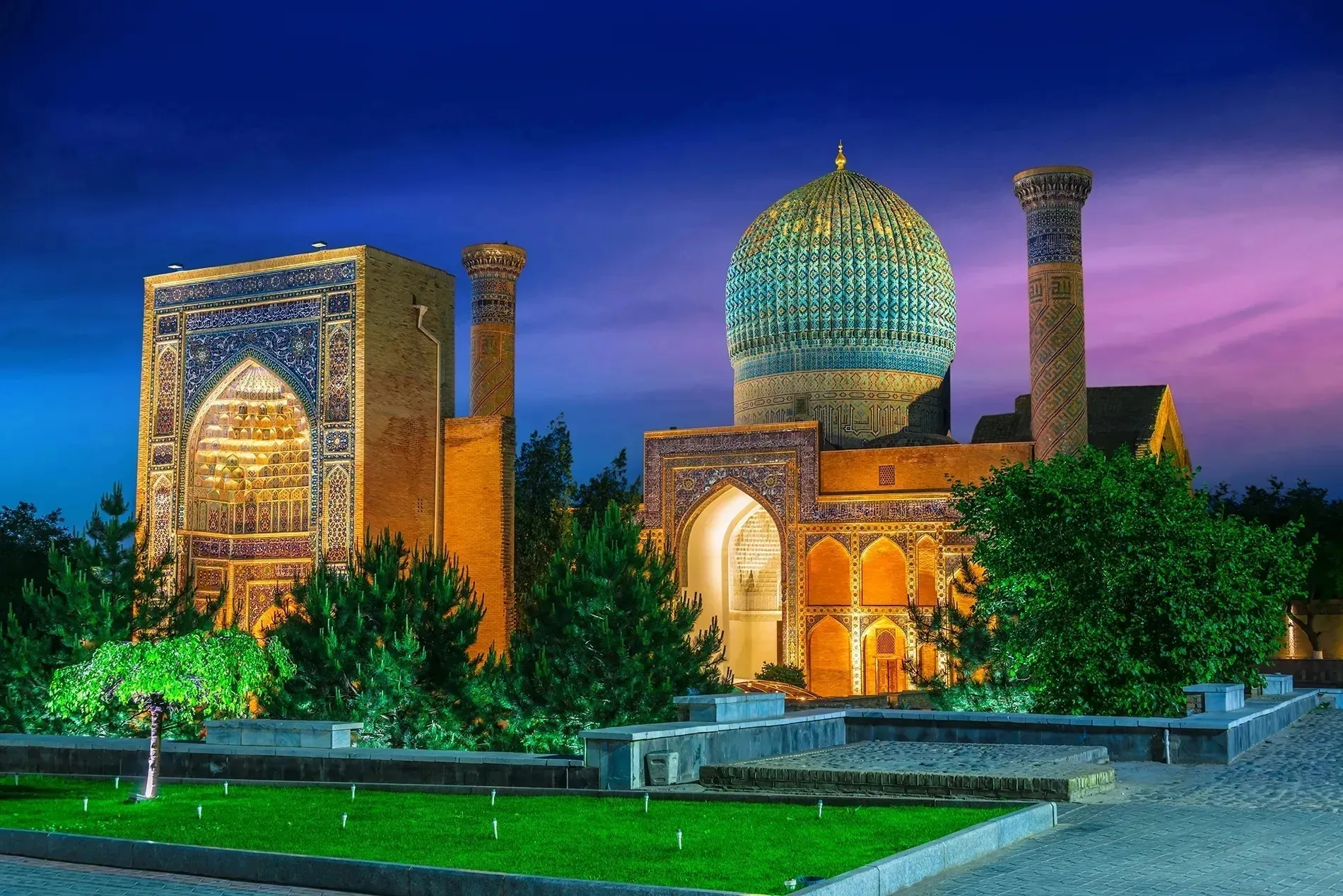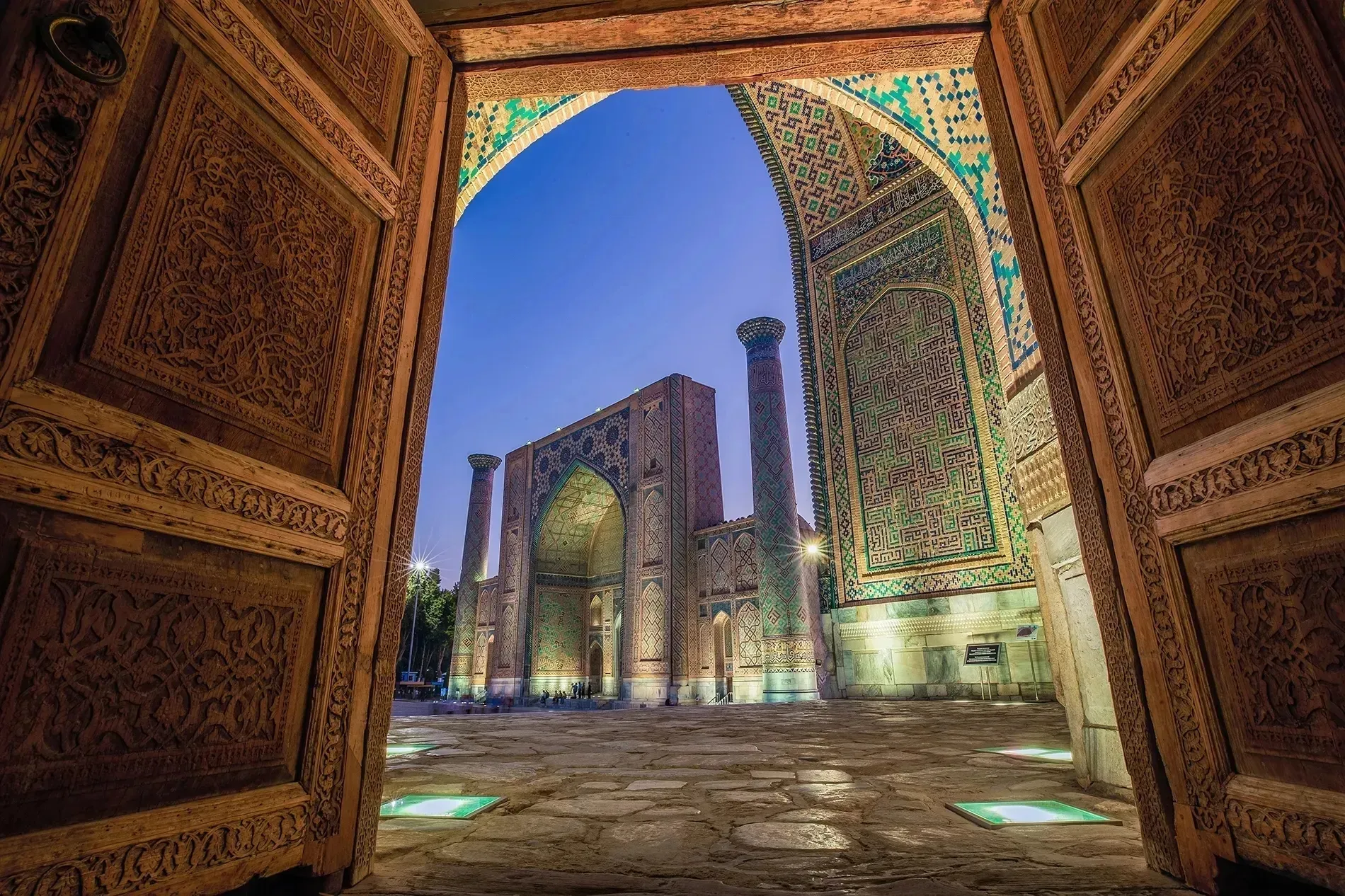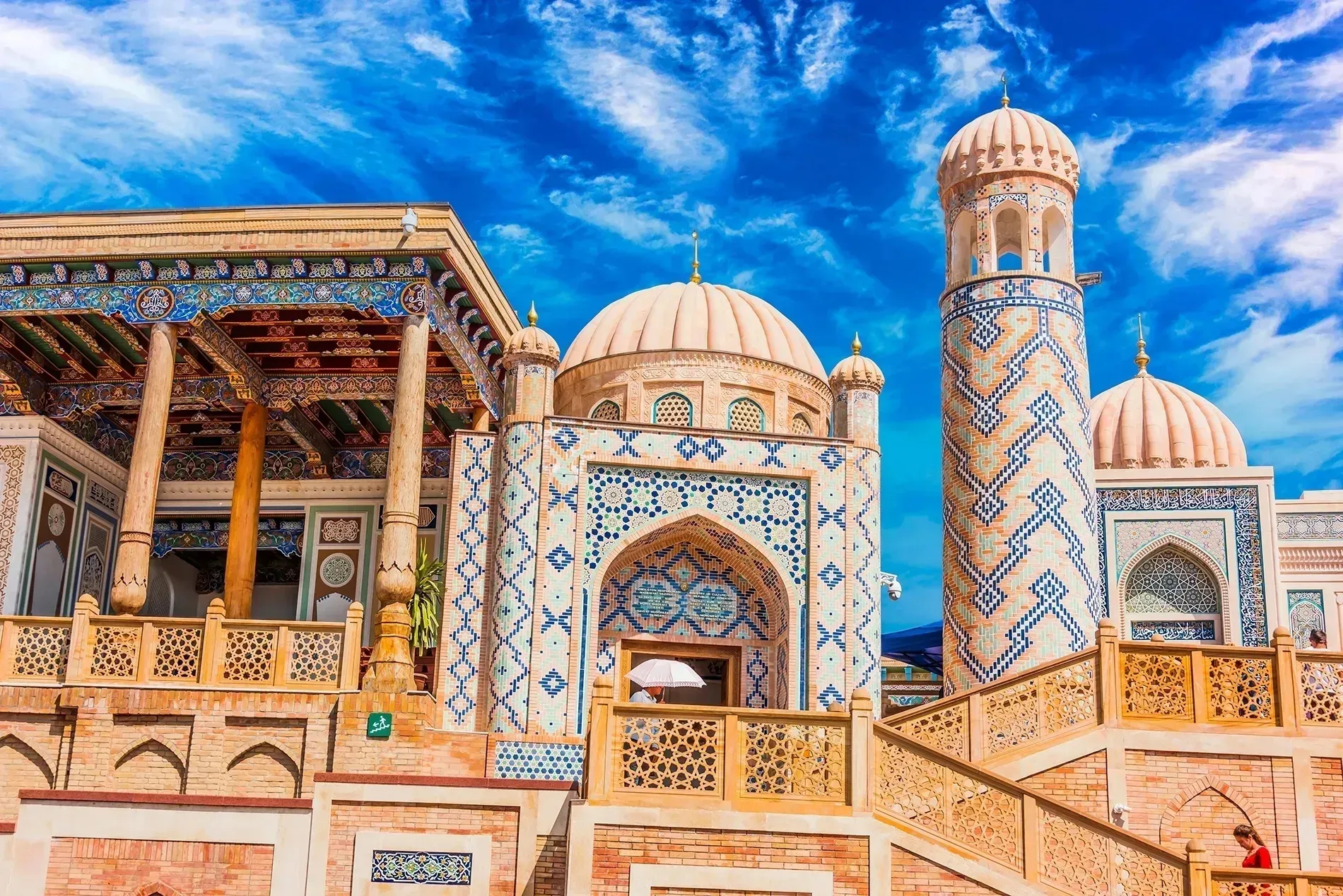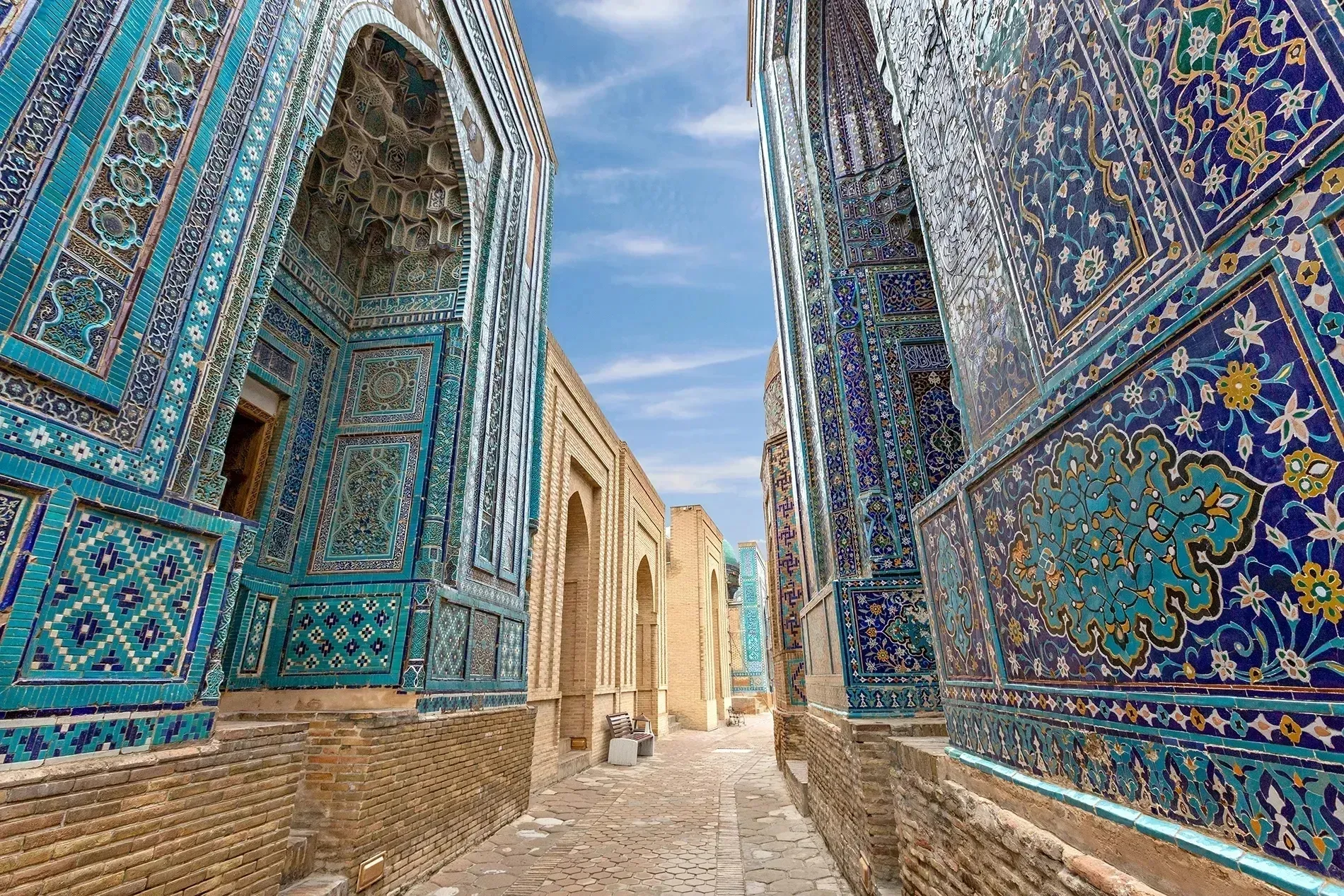Samarkand
Samarkand the “Capital of the Turkic Civilization”
Samarkand was declared as the “Capital of the Turkic Civilization” by the decision of the Council of Heads of State of the Organization of Turkic States (OTS) on November 11, 2022 during the 9th Summit of the Organization in Samarkand.
Samarkand, along with Rome and Babylon, is considered as one of the oldest cities in the world. Romans referred to this city as Marakanda. In ancient times, Samarkand was the capital of the ancient state of Sogdiana and was called Afrasiab, while in the East the city was named as the “Pearl of the East”.
According to archaeological excavations, the history of the city goes back to 750 B.C. The age of the city is more than 2750 years.
In 2001 the city and its historical architectural and archaeological monuments were included in the UNESCO World Heritage List under the name “Samarkand - the crossroads of cultures”.
Samarkand by its location, the presence of trading centers and predominance of famous merchants in the Middle Ages acquired the title of the “Heart of the Great Silk Road”. Samarkand merchants traded with the Far East, South Asia and the Middle East. Through Samarkand on the routes of the Great Silk Road unsurpassed in beauty fabrics - raspberry velvet, brocade, silk, carpets, metal and leather products, jewelry, famous Samarkand paper and many other products were delivered to different countries.
Today Samarkand combines ancient traditions of the east and modernity. It is the second largest city in Uzbekistan, with about a million inhabitants.
According to written sources, the city was built by the legendary ruler of Turan Afrasiyab (Alp Er Tonga), the first Turkic Kagan.
Samarkand was the capital of a number of Turkic States in the history of Uzbek statehood.
Between 875-892 Samarkand became the capital of the Samanid State, the first Turkic-Muslim State in the history. During this period, the city began to develop and expand trade.
Samarkand flourished in the period of 1040-1212, when it became the capital of the Karakhanid State. The Karakhanids after the Turkic Khaganate were considered the largest Turkic Empire. The Karakhanids ranked themselves among the descendants of the king of Turan - Afrasiab and called the dynasty as “al-Afrasiab” - the clan of Afrasiab.
Between the years 1212-1220 the city became the capital of the State of Khwarazm-Shahs another Turkic State.
One of the remarkable periods of the city can be described as the capital of the “State of Turan” - the Empire of Amir Temur, when Samarkand becomes the center of trade, science and literature, architecture and handicrafts.
During this period, the city turned into one of the centers of the Great Silk Road, through which the path forked in two directions: Iran to the Mediterranean Sea and the North Caucasus to the Black Sea.
From 1500 to 1533 Samarkand became the first capital of the Sheibanid State.
In 1925-1930 the city was the first capital of the Uzbek SSR.
The main architectural monuments of Samarkand were the result of the creation of Turkic dynasties and peoples. These are the Shakhi Zinda ensemble (Karakhanids and Temurids), Registan (Temurids and Ashtarkhanids), Gur-Emir, Ulugbek Observatory, Bibi-Khanym Mosque, Mausoleum of the Prophet Donier, Rukhabad Mausoleum
Samarkand was the center of science and spirituality. Great personalities such as Imam Moturudi and Imam Bukhari, who made a huge contributions to the enlightenment of Islam, are buried in the city.
During the period of the Temurids, the Samarkand Academy “Dor-ilm” (Astronomical School of Mirza Ulugbek) operated, which was the second after the Mamun Academy in Khorezm “Dorul Hikma va Maorif”.
Mathematics, geometry, astronomy, medicine, history, geography, poetics and others were studied alongside the Qur'an, the Hadith, the Tafsir and the Fiqh. The Ulugbek School was attended by Abdurrahman Jami, Khoja Ahrar, Alisher Navoi, Omar Hayam. Kazi-zadeh Rumi, Al-Kashi, Ali Kushchi, Maulana Muhammad Khawafi and many others.

